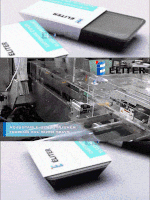Shaping the Future of our Alternative Protein Foods
2022-12-17
The advancement of research on alternative proteins for the food and beverage industry will undoubtedly influence our global food supply chain and shape the future of our food.

Key conclusions
- The global alternative protein market is forecast to reach USD 36,610 million by key_points 2029, representing an anticipated CAGR of between 10% and 25% based on various factors during the forecast period of 2022 – 2029.
- 55% of consumers are more likely to buy sustainable food products, according to a Cargill global FATubesTM survey.
- Rigorous testing of alternative foods and proteins is a necessity as the market evolves to create safer, healthier and more sustainable options.
What are alternative proteins?

Alternative proteins are foods, ingredients or beverages that provide all or a substantial amount of protein from non-animal sources.
Most often, these can be proteins of plant origin, proteins based on cell cultures or based on fermentation, or even a hybrid of plant and cell culture sources.
In 2020, the global alternative protein market was estimated at 2800 million US dollars. The most recent figures suggest that it is projected to reach US$36.6 billion by 2029, an anticipated LOAD of 12.4% during the 2022-2029 period.
Consumer behaviors that influence the market
The results of Cargill’s latest FATutitudesTM global survey highlight that 55% of consumers are more likely to buy sustainable food products.
Factors such as “sustainable sourcing” and “conservation of natural resources” reportedly outweighed other considerations such as ‘Fair trade’ and ‘reduced packaging options, for example, in most of the participating countries.
Alternative protein foods and drinks are often marketed as a more sustainable option for consumers who prioritize factors such as climate change, animal rights and human welfare in their purchasing choices.
Known potential consumer behaviors that influence the food market include:

Environmental sustainability
Limiting the greenhouse gas (GHG) emissions from livestock and agriculture necessary to produce meat and dairy products, which contributes to climate change. The United Nations highlights that global livestock farming is responsible for 14.5% of GHG emissions, which exceeds transport emissions.
In addition, a 2021 study found that the use of animals as a food source (including cows and pigs), as well as as feed for livestock, is responsible for 57% of all emissions from food production. While the research identified only 29% coming from the cultivation of plant-based foods in comparison.
On the contrary, if we examine only some of the causes of deforestation, the reports also find that agriculture of non-meat products, such as soybean cultivation, are also contributes to some extent to climate change due to their increased demand from food and beverage manufacturers for the consumer market.
Health and Wellness
Many consumers are concerned about veterinary drugs, hormones and other contaminants in meat-based products, so they are more inclined to buy alternative protein-based products, which they may consider a healthier option.
In addition, some consumers have made conscious efforts to reduce their meat consumption, particularly red and processed meats, based on scientific research that links high and regular consumption of such products with an increased risk of certain diseases.

Food safety protection and fraud prevention
Due to opportunistic food and beverage scammers, it can sometimes be a challenge for honest manufacturers to guarantee the exact contents of their products. This problem covers the food and beverage industry and there is no exception for processed meat products: consumers are at the mercy of accurate product labeling.
Cases such as the 2013 horsemeat scandal could have encouraged regular meat eaters to opt for alternative protein products at mealtime.
Sustainable and diverse food sources
The globalization of food supply chains creates a vulnerability in the system, as many countries depend on imported food to feed their local populations on a large scale. Over the past two and a half years, certain global events have caused disruptions on different continents within the global food supply chain, such as the COVID-19 pandemic and the most recent conflict in Ukraine, which in turn affects trade prices and food availability.
Factors such as these have led other countries to restrict certain export foods to ensure their domestic supply, which is likely to impose detrimental effects on other countries that are net importers, especially those that are less economically developed.
Whenever feasible, net food importing countries are investing in strengthening thelocal food security. For example, Singapore currently imports ~90% of its food and is increasing its local food production, aiming to produce 30% of its nutritional needs locally by 2030, which is known as its “30 by 30” goal.
R&D programs funded by local governments, such as A*STAR’s Singapore Food and Biotechnology Innovation Institute (SIFBI), are developing animal-free technologies to grow cells as alternative protein sources in the hope of achieving the country’s goal.
To generate sustainable and diverse food sources, some of the largest investments in the alternative protein market are currently coming from North America. For example, more than 40% of fermentation-based alternative protein manufacturing companies are based in the USA. USA., followed by Europe with 28% and then by Israel with 17%.
Highlights of the global investment in the alternative protein market
United States
Between 2010 and 2021, American companies dominated the overall alternative protein market in terms of capital investments.
For example, companies such as Beyond Meat, Nature’s Fynd and Perfect Day invested several hundred million dollars in alternative plant-based proteins and fermentation.
Israel
From the first half of 2021 to the second half of 2022, Israel’s alternative protein industry increased by 160%.
One of Israel’s biggest investments this year came from a local startup called Redefined Meat, a manufacturer of 3D-printed plant-based products. The company has invested $135 million to finance production in Israel and the Netherlands and explore more partnership opportunities with restaurants globally.
The Netherlands
Leading the way forward in Europe, the government of the Netherlands recently announced an investment of 60 million euros in local cellular agriculture that produces cultured meats. funding secured by a new consortium called Cellular Agriculture Netherlands, comprising 12 organizations in academia, NPOs and private companies.
Protection of the food and beverage industry
Growing concerns about food security, food availability and climate change have resulted in the progressive acceptance and adoption of alternative proteins in many parts of the world. However, novel products may face potential challenges, including food safety issues. In some markets, the demand for alternative proteins has skyrocketed enormously, while the supply has fallen short, which has led to food fraud, in which some basic products, such as wheat or soybeans, which have been recognized as food allergens, can be used to replace more expensive plant-based proteins. The other common types of food fraud include concealment, counterfeiting, and mislabeling.
Tests for alternative proteins in food
Agilent’s workflow solutions, designed for the food and beverage industry, are a one-stop shop for testing alternative protein products to validate their authenticity, nutritional information and safety for the consumer market.
In one study, Agilent’s LC-Q-TOF-MS/MS technology (a 1290 Infinity Series liquid chromatograph coupled with an LC/MS 6550 iFunnel Q–TOF device) was used to investigate specific non-meat proteins and peptide markers used as substitutes in the preparation of ready-to-cook beef burgers.16
The research conducted by a team of scientists shows a non-specific GC/MS-based metabolomics approach that uncovers the differences between the chemical profiles of a popular plant-based meat alternative and grass-fed ground beef with similar nutritional profiles using an Agilent 7890 gas chromatography (GC) system coupled to an Agilent 5977 GC/MSD.
In addition, research shows that the elementary analysis of new cultured meat products, as well as vegetable proteins, can be achieved using atomic spectroscopy. Due to the process of preparing alternative plant- and cell-based protein products for the consumer market, there is a possibility that some elemental metals will cross-contaminate the final products destined for supermarket shelves. Agilent’s atomic spectroscopy instruments, such as the inductively coupled plasma mass spectrometry (ICP-MS) 7850, allow end-users to identify and quantify metal elements of interest in samples of alternative protein products.
For companies looking to develop cell-based foods, optimizing the protein and amino acid field in a bioreactor is critical, but it is also important to know when and at what stage to stop the reaction. In this application note, the Agilent Infinity II Prime online LC allows automated online sampling of the bioreactor to analyze the growth parameters, including amino acids and organic acids, to study the reaction rate and optimize the protein yield in the reactor.
Robust testing tools to support your lab
The advancement of research on alternative proteins for the food and beverage industry will undoubtedly influence our global food supply chain and shape the future of our food. Whether your laboratory analyzes meats of plant or cellular origin, technologies such as ICP-MS, triple quadrupole liquid or gas chromatography (QQQ), mass spectrometry (LC/GC/MS) or high performance liquid chromatography (HPLC) are expertly recommended for robust testing purposes.




